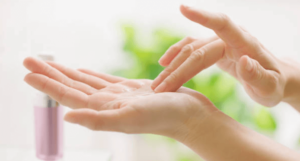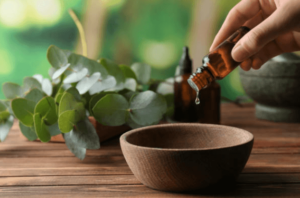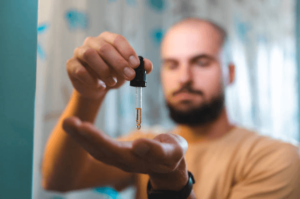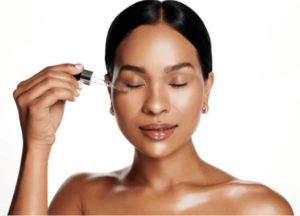Examining Proper Usage and Risks in Aromatherapy

In recent years, aromatherapy has gained popularity as a natural and holistic approach to improving mental and physical well-being. Central to aromatherapy are essential oils, concentrated plant extracts with powerful therapeutic properties. While essential oils offer numerous benefits, it’s essential to understand their proper usage and potential risks to ensure safe and effective aromatherapy practices. In this comprehensive beauty blog, we will explore the safety guidelines for using essential oils in aromatherapy, debunk common myths, and shed light on the potential risks associated with their misuse. Let’s embark on this journey of knowledge to enhance our understanding of essential oils’ safety in aromatherapy.
Essential oils are extracted from various parts of plants, such as leaves, flowers, stems, and roots. These oils capture the plant’s natural aroma and possess the plant’s therapeutic properties. When used correctly, essential oils can promote relaxation, alleviate stress, improve mood, and offer relief from various physical ailments. The effectiveness of essential oils lies in their ability to interact with the limbic system, the part of the brain responsible for emotions and memories.
Essential oils are typically extracted through a process of steam distillation or cold pressing. Steam distillation involves using steam to release the volatile compounds from the plant material, which are then collected as the steam condenses back into a liquid. Cold pressing is used for citrus fruits, where the peel is pressed to extract the oil.
Essential oils can be blended together to create synergistic effects. This means that the combination of certain oils can enhance their individual properties, creating a more potent and effective blend. Blending also allows aromatherapists to create personalized formulations based on individual needs.
Due to their high concentration, essential oils are often diluted with carrier oils before applying them to the skin. Carrier oils, such as coconut, jojoba, sweet almond, or grapeseed oil, serve as a medium to dilute essential oils, making them safe for topical use. Carrier oils also have their own beneficial properties, adding to the overall effect of the blend.
The quality and purity of essential oils are crucial to their effectiveness and safety. High-quality essential oils are sourced from reputable suppliers and are free from adulteration or synthetic additives. Look for oils labeled as 100% pure and from certified organic sources whenever possible.
Safety Precautions for Using Essential Oils
2.1 Dilution: Essential oils are highly concentrated, and using them undiluted on the skin can cause irritation or even burns. Always dilute essential oils with a carrier oil, such as coconut oil or jojoba oil, before applying them to the skin. A general rule of thumb is to use 1-2% essential oil dilution for adults and even lower percentages for children and elderly individuals.
2.2 Patch Test: Before using a new essential oil, perform a patch test on a small area of your skin to check for any allergic reactions. Apply a diluted drop of the essential oil and wait for 24 hours. If you experience any redness, itching, or irritation, avoid using that essential oil.
2.3 Avoid Contact with Eyes and Mucous Membranes: Essential oils should never come into direct contact with the eyes, ears, or other sensitive areas. If accidental contact occurs, rinse thoroughly with a carrier oil and seek medical attention if irritation persists.
2.4 Photosensitivity: Some essential oils, such as citrus oils, can cause photosensitivity, making the skin more sensitive to sunlight. Avoid sun exposure for at least 12 hours after using photosensitive oils on the skin.
2.5 Pregnancy and Medical Conditions: Certain essential oils are not recommended for use during pregnancy or for individuals with specific medical conditions. Always consult a qualified aromatherapist or healthcare professional before using essential oils if you are pregnant, nursing, or have any health concerns.

Common Myths and Misconceptions
3.1 “Natural Equals Safe”
One of the prevailing myths about essential oils is that since they are natural products derived from plants, they must be inherently safe for use in any manner. While it is true that essential oils come from natural sources, their potency and concentration demand responsible usage. Undiluted or improperly diluted essential oils can cause skin irritation, sensitization, or even chemical burns. Some essential oils may also interact with certain medications or medical conditions. It is crucial to adhere to proper dilution guidelines and safety precautions to avoid adverse reactions. Just like any other natural or synthetic substance, essential oils should be used with knowledge, respect, and caution to ensure safe and effective use.
3.2 “All Essential Oils are Safe for Ingestion”
Ingesting essential oils is a highly debated topic in the aromatherapy community. Some essential oils are used as flavoring agents in culinary applications, but ingesting essential oils as a form of therapy is different from culinary usage. Ingestion of essential oils can be hazardous and is generally not recommended for several reasons:
a) High Concentration: Essential oils are highly concentrated, and ingesting even a small amount can overwhelm the digestive system, leading to adverse reactions.
b) Toxicity: Some essential oils contain compounds that can be toxic when ingested, leading to digestive issues, liver damage, and other serious health problems.
c) Interactions: Ingesting essential oils can interact with medications or existing health conditions, leading to potential complications.
Aromatherapy is most effective when essential oils are inhaled or used topically in safe and proper dilution ratios. If you are seeking therapeutic benefits, inhalation and topical application are the recommended methods.

3.3 “Essential Oils Can Cure All Ailments”
While essential oils have therapeutic properties and can provide relief and support for various health concerns, they are not a cure-all solution for all ailments. It is essential to maintain realistic expectations about the capabilities of essential oils in addressing health issues. While they can help alleviate symptoms or promote relaxation, they are not a substitute for professional medical treatment.
For serious health issues or chronic conditions, it is crucial to seek advice from qualified healthcare professionals. Integrating aromatherapy and essential oils into a comprehensive approach to health and well-being can be beneficial, but it should complement, not replace, medical care. Always consult with a healthcare professional for diagnosis, treatment, and management of health concerns.
Risks of Misusing Essential Oils
4.1 Skin Irritation: Undiluted essential oils and improper dilution can lead to skin irritation, redness, and sensitivity. Always dilute essential oils and perform patch tests to ensure compatibility with your skin.
4.2 Respiratory Issues: Inhaling essential oils directly from the bottle or using excessive amounts in diffusers can lead to respiratory problems, especially in individuals with asthma or other respiratory conditions.
4.3 Allergic Reactions: Some individuals may be allergic to certain essential oils, leading to allergic reactions such as hives, itching, or difficulty breathing. Patch tests are crucial to identifying potential allergies.
4.4 Hormonal Imbalance: Certain essential oils, especially those containing phytoestrogens, can disrupt hormonal balance when used excessively or improperly. Pregnant women and those with hormonal imbalances should exercise caution.
Essential Oil Safety Tips
Proper storage of essential oils is essential to maintain their potency and extend their shelf life. Essential oils are highly concentrated and volatile, which means they can be sensitive to light, heat, and air exposure. To preserve their beneficial properties, it is crucial to store them correctly:
- Use Dark Glass Bottles: Essential oils should be stored in dark-colored glass bottles, such as amber or cobalt blue, to protect them from direct sunlight. Sunlight exposure can cause the oils to deteriorate and lose their therapeutic qualities.
- Avoid Heat and Temperature Fluctuations: Store essential oils in a cool, dry place, away from heat sources and temperature fluctuations. Heat can accelerate the oxidation process, causing the oils to lose their potency.
- Secure the Cap Tightly: Ensure the cap of the essential oil bottle is tightly closed after each use. This prevents air from entering the bottle and maintains the freshness of the oil.
- Keep Out of Reach of Children and Pets: Essential oils should be stored out of reach of children and pets to prevent accidental ingestion or spillage.
Before using essential oils, it is crucial to educate yourself about their properties, benefits, and safety guidelines. Each essential oil has unique characteristics, and understanding their specific properties can help you choose the right oils for your needs. Some essential oils may have contraindications for certain health conditions or medications, making it essential to be well-informed before using them.

The quality and purity of essential oils can significantly impact their effectiveness and safety. With the growing popularity of essential oils, the market has seen an increase in adulterated or low-quality products. To ensure you are using high-quality essential oils:
- Choose Reputable Brands: Purchase essential oils from well-known and reputable brands that have a track record of providing pure and authentic products. Look for brands that provide information about the botanical name, country of origin, and extraction method of the oil.
- Check for Certifications: Some essential oil brands carry certifications from third-party organizations, indicating their commitment to quality and purity. Look for certifications like organic, ISO, or GC/MS (Gas Chromatography-Mass Spectrometry) testing.
- Avoid Synthetic Additives: Avoid essential oils labeled as “fragrance oils” or those that contain synthetic additives, as they do not offer the same therapeutic benefits as pure essential oils.
By using high-quality essential oils from reputable brands and understanding their properties, you can maximize their benefits while ensuring safe and enjoyable aromatherapy experiences.
Aromatherapy and essential oils offer a wealth of benefits for our well-being when used correctly and responsibly. Understanding the safety guidelines, myths, and risks associated with essential oils is crucial to ensuring a positive and effective aromatherapy experience. Remember to dilute essential oils, perform patch tests, and seek professional guidance when needed. By treating essential oils with respect and knowledge, we can harness their incredible potential for enhancing our beauty, health, and overall quality of life in the realm of aromatherapy.




